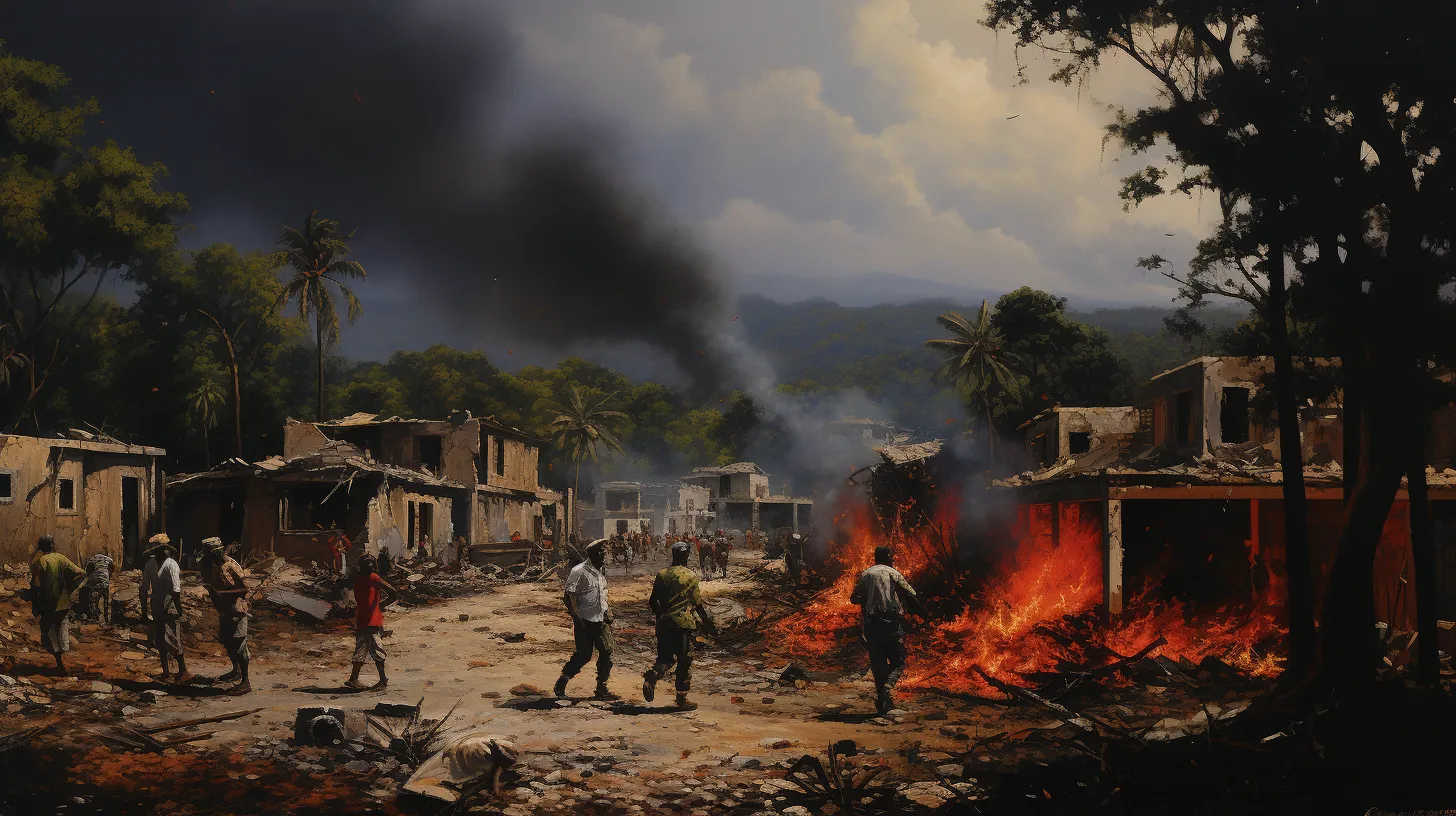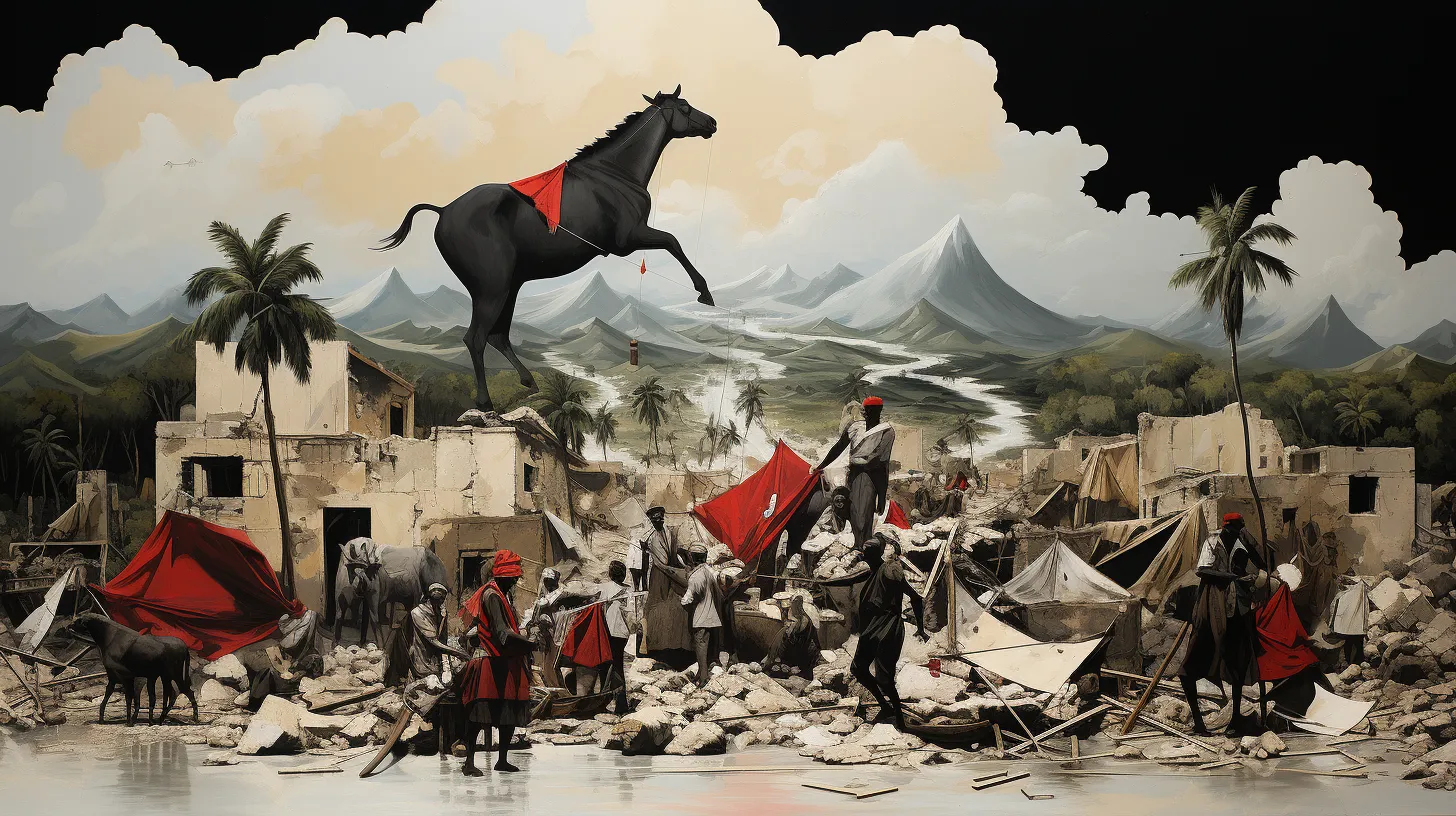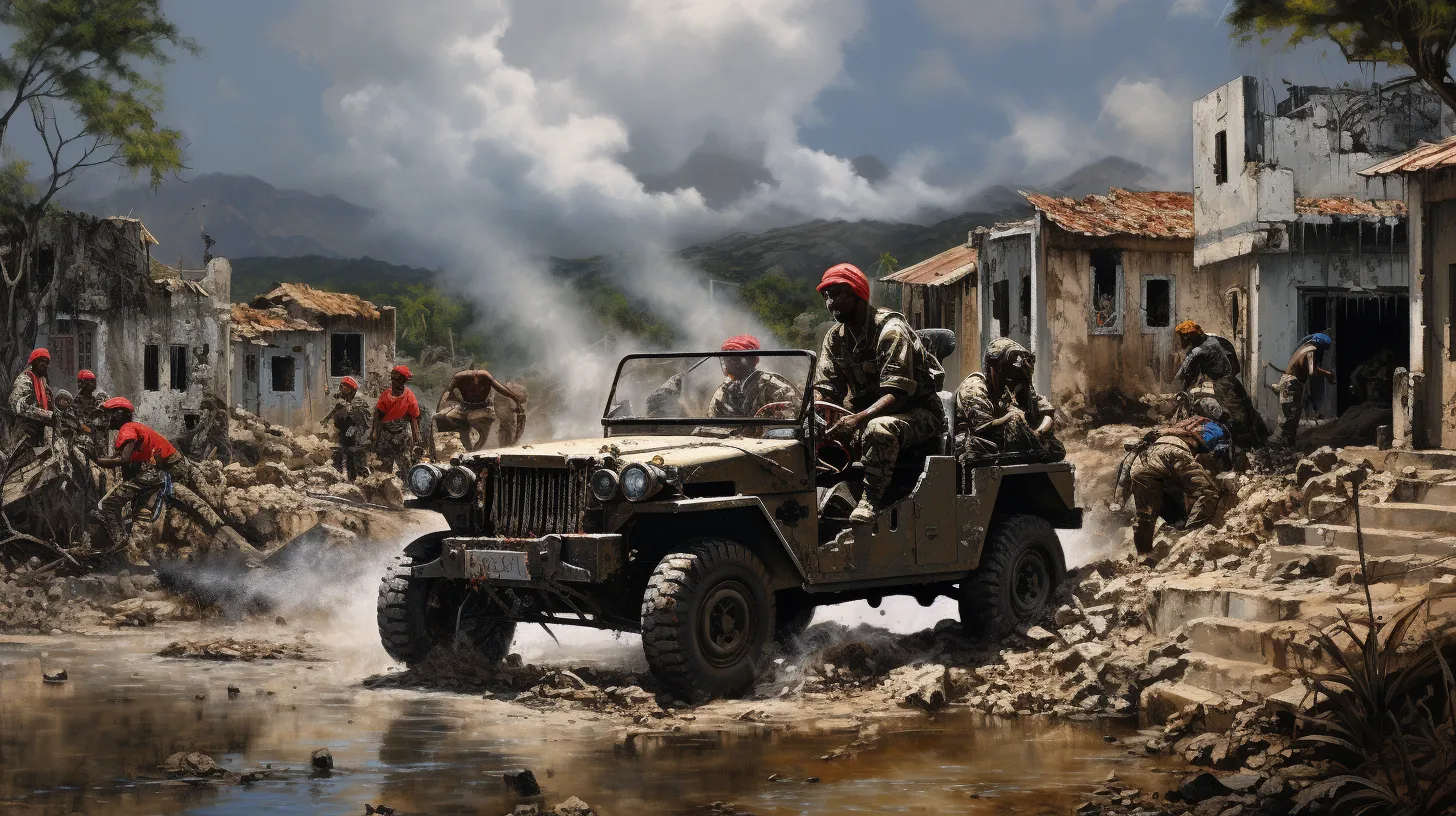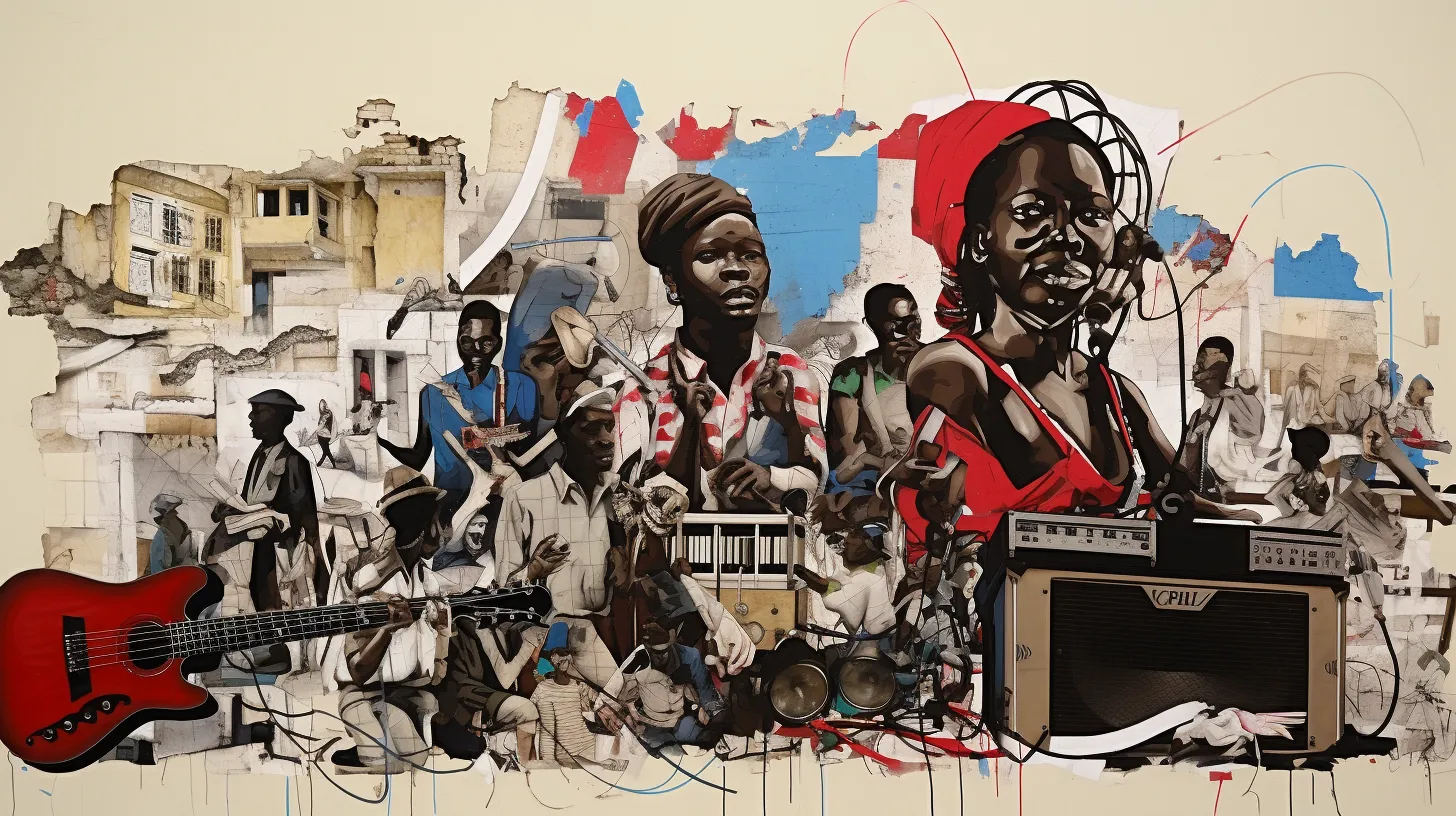The impact of the United States on Haiti’s history raises the question: How did the US contribute to Haiti’s challenges?
US interventions and policies have significantly affected Haiti’s political stability and economic growth. This influence ranges from supporting authoritarian regimes to imposing detrimental economic measures, playing a crucial role in Haiti’s struggles.
The inconsistent aid and assistance from the US have further worsened the nation’s challenges.
This history serves as a stark reminder of the complexities and repercussions of foreign involvement.
Historical US Interventions in Haitian Politics

Historically, the US frequently intervened in Haitian politics, impacting the country’s economic and political stability. The interventions date back to the aftermath of the Haitian Revolution, when the United States sought to secure its economic interests and prevent European powers from controlling Haiti.
The interventions were often aimed at restoring order and maintaining a favorable environment for American investments, sometimes at the expense of the Haitian government and its people. This involvement included supporting authoritarian leaders and even military interventions to install or remove Haitian Presidents.
The impact of these interventions has been profound, contributing to the political and economic challenges that Haiti faces today. The US involvement, including the 1915-1934 military occupation, has left a lasting legacy that continues to shape Haiti’s political and economic landscape.
Economic Exploitation and Trade Imbalances

Amidst economic exploitation and trade imbalances, the US has perpetuated a cycle of poverty in Haiti through unequal trade relationships and extractive economic practices.
The historical repercussions of French colonists’ exploitation and the lost revenues from slavery continue to reverberate in Haiti’s economic landscape.
The US, under the guise of Roosevelt’s Good Neighbor policy, has capitalized on Haiti’s vulnerability, further exacerbating its economic struggles. Haitian resources, such as gold reserves, have been siphoned off by American banks, weakening the country’s economic stability.
Additionally, trade imbalances have heavily favored the US, hindering Haiti’s economic autonomy and perpetuating its reliance on foreign aid.
The exploitative practices imposed by the US have stymied Haiti’s economic development and perpetuated its status as the poorest country in the Western Hemisphere.
The impact of these actions continues to resonate, underscoring the urgent need for equitable economic partnerships.
Impact of US Foreign Aid and Assistance

The US’s provision of foreign aid and assistance has had a profound impact on Haiti’s economic and political landscape. While the aid provided has been substantial, it has often been inconsistent and insufficient to address the deep-rooted issues in Haiti.
The U.S. has a history of intervening in Haitian politics, supporting authoritarian leaders, and undermining democratic processes. This interference has hindered Haiti’s ability to establish sustainable political stability and economic growth.
Furthermore, the U.S. military force occupation of Haiti has destabilized the country, rather than providing the intended stability. Following natural disasters, such as the Haiti earthquake, American aid efforts have faced criticism for their inability to effectively rebuild and rehabilitate the nation.
The impact of US foreign aid and assistance on Haiti has been plagued by a lack of long-term, sustainable solutions.
Environmental Degradation and Natural Resource Extraction

Due to foreign interventions and exploitation, Haiti has experienced extensive environmental degradation and unsustainable natural resource extraction. The U.S.’s influence over Haiti’s policies, particularly through mechanisms like the National Bank and President Woodrow Wilson’s military occupation, has contributed to this devastation.
The imposition of neoliberal economic policies by Western powers has further exacerbated the situation, leading to the destruction of Haitian agriculture and natural habitats. Even the UN peacekeeping mission, meant to bring stability, introduced a cholera epidemic, worsening environmental degradation.
President Jovenel Moïse’s administration has also faced criticism for its approach to natural resource management. Efforts by organizations like George Washington University to address these issues are crucial.
It’s clear that a historical pattern of exploitation and neglect, masked by initiatives such as the Roosevelts Good Neighbor policy, has led to the environmental crisis in Haiti.
Influence of US Media and Cultural Imperialism

The U.S.’s cultural imperialism through media and entertainment has perpetuated negative stereotypes of Haiti, overshadowing its rich cultural identity and contributing to a distorted global image of the country. Under the Bush administration, U.S. media often portrayed Haiti through a lens of instability and crisis, perpetuating a narrative of victimhood and dependency. This influence has marginalized Haitian cultural expressions, eroding indigenous practices and traditions.
Despite the resilience and rich history of Haiti, American cultural imperialism has failed to highlight its contributions to the world, further perpetuating a one-sided narrative. Even under figures like Hillary Clinton and Franklin D., the lack of diverse representation of Haitian perspectives in global media has reinforced these stereotypes.
It’s crucial to recognize the impact of cultural imperialism on shaping global perceptions and work towards amplifying authentic Haitian voices.



